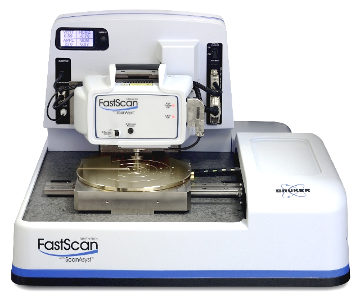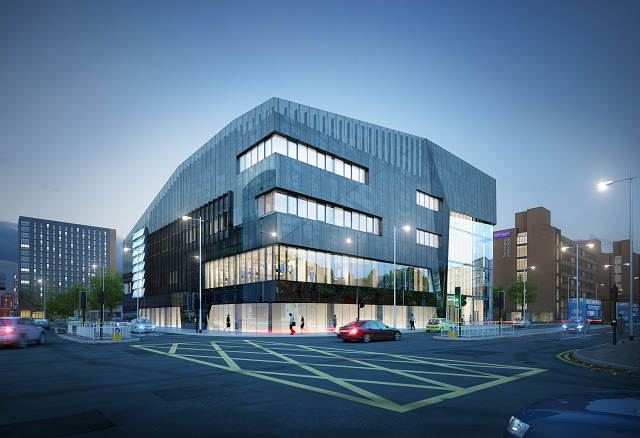Bruker has become part of an exclusive group of industrial collaborators working with the UK's National Graphene Institute at the University of Manchester.
This partnership follows the NGI's purchase of two Bruker atomic force microscopes (AFMs) - Dimension FastScan® and Dimension Icon® - in addition to the five already in operation there, which are used to study graphene's nanoscale properties and nanofabrication processes.
Our Bruker AFMs are anticipated to provide important new insights into nanoscale variations of graphene conductivity and work function.
Prof. K. Novoselov
 Bruker's Dimension FastScan AFM
Bruker's Dimension FastScan AFM
The partnership includes a PhD position partially sponsorsed by Bruker, for research into unique scanning probe microscopy (SPM) methods for the characterization of graphene and other 2D materials.
Sir Andre Geim and Sir Kostya Novoselov from The University of Manchester were the first to isolate and characterize graphene, the thinnest, strongest and most conductive material ever discovered, for which they received the Nobel Prize for Physics in 2010.
The National Graphene Institute's new purpose-built, 7800m2 facility was officially opened by the UK's Chancellor of the Exchequer, George Osborne, on the 20th March 2015.
The NGI is a national centre dedicated to graphene research which will allow individuals in academia and industry to work in together on the development of futuristic graphene applications.

Image credit: National Graphene Institute
Graphene is basically an almost transparent, one-atom-thick carbon sheet, which could be capable of transforming a huge range of technology ranging from ultrafast broadband and smartphones to computer chips and drug delivery.
AFMs feature a spatial resolution of less than 1 nm, and are a key tool used by graphene researchers to investigate vital mechanical, chemical and electrical properties at the atomic scale.
Bruker is a leading manufacturer of atomic force microscopes, incorporating the latest advances in AFM techniques with several proprietary technologies for the measurement of nanoscale topography, as well as nanoscale mapping of mechanical, electrical and chemical properties.
Bruker originally announced the beginning of their partnership with the NGI in 2013, when the recently-formed institute purchased their Dimension FastScan® AFM.
The FastScan was chosen thanks to its high speed and resolution, and its ability to characterize nanoscale electrical properties of materials
Professor Kostya Novoselov commented:
“Our Bruker AFMs are anticipated to provide important new insights into nanoscale variations of graphene conductivity and work function. Coupled with simultaneous quantitative mapping of mechanical properties, enabled by Bruker’s exclusive PeakForce Tapping®, NGI researchers hope to uncover new information that will ultimately optimize the performance of graphene-based materials and devices.”
Paul Scagnetti, PhD, President of Bruker's Nano Surfaces division, added:
“We are pleased that the National Graphene Institute continues to rely on our proprietary technology for its new world-class research facility, bringing their total now to seven Bruker systems.
"We are also gratified to be a part of the UK-wide Centre for Doctoral Training, where our unique AFM technologies will enable the sponsored Ph.D. student to learn even more about the physical and electrical properties of 2D materials under Professor Novoselov.”
Graphene: Made in Manchester
Graphene: Made in Manchester